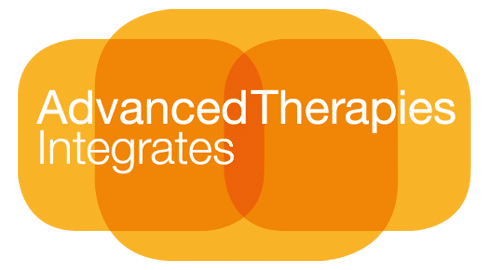
Advanced Therapies Integrates Speakers 2023
Sally Ann Forsyth OBE
During her time as CEO at Stevenage Bioscience Catalyst, total private equity investment in biotechnology raised in Stevenage has grown to become comparable with that of Cambridge, London and Oxford.
Sally Ann has been responsible for the strategy, growth and development of four internationally recognised science parks including Stevenage Bioscience Catalyst, Harwell Oxford, Colworth Science Park and Norwich Research Park.
She began her career with Unilever as part of the management training scheme and later had lead responsibility for In-Licensing, Strategic Alliances and Open Innovation within the Unilever Foods and Discovery divisions. Being part of the founding team of Unilever Ventures and Unilever Technology Ventures gave Sally Ann an insight into the needs of growing companies. She gained her property experience through Goodman International where she was Director of Science Parks responsible for the development and management of their UK portfolio.
Sally Ann is passionate about the translation of UK science into world leading innovations and the creation of supportive environments to help early-stage companies grow. She has a PhD in molecular biology from the University of Cambridge and is a qualified management accountant (CGMA).
Matthew Durdy
Matthew Durdy is Chief Executive of the Cell and Gene Therapy Catapult, having been part of the founding team in 2012. Prior to 2020, he was Chief Business Officer and was responsible for strategy, communications, marketing, and business development. He is credited with leading the design and implementation of the commercial model for the highly successful Cell and Gene Therapy Catapult manufacturing centre and being a global champion for the early integration of healthcare economics and reimbursement expertise into decision-making and clinical product design.
He began his career in international investment banking and venture capital, and has successfully invested in and managed a number of biotechnology SMEs and regional operations of multinational organisations. He has an MA from the University of Oxford in Pure and Applied Biology, an MBA from the University of Chicago, and is a Fellow of the Chartered Institute for Securities and Investment. He is also Vice Chair of the Board of Trustees of the charity Parkinson’s UK.
Michael Baker
Michael is responsible for overseeing FUJIFILM Diosynth Biotechnologies’ (FDB) Viral Gene Therapy operations in the UK. Prior to this he spent 4 years at FDB’s College Station location in Texas USA where he was Head of Process Development, and was responsible for leading a rapidly expanding process development team. He has previously served in a number of technical roles at FDB’s sites in Texas and the UK and before joining FDB, worked for MSD Biologics and Avecia Biotechnology. Michael gained a BSc in Medical Microbiology and Immunology and an MPhil in Developmental Biology from Newcastle University.
Nicola Redfern
Following 5 years’ experience working in the gene therapy arena at bluebird bio, with a focus on reimbursement and commercialisation, Nicola set up NJ Redfern Ltd in 2022 to enable her to consult, coach and collaborate with other organisations.
With a consistent focus over recent decades on rare disease & oncology/ haematology, her primary attention has been on pricing and reimbursement, service delivery and shaping the external environment. She has been in the pharmaceutical industry since 1989, and has been employed by 10 different companies.
Since her company’s inception last year she has contracted with over 12 organisations on a diverse range of projects – including supporting 2 further gene therapy companies in their launch planning in the UK. Nicola was previously an active member of the ABPI – chairing the ATMP working group during 2021, a member of their Value and Access group and supporting various government affairs/communications initiatives. She has worked closely in the last 6 years with the Cell and Gene therapy catapult in the UK. More recently Nicola has been invited to sit on the advisory board for company ATMPS, has given talks at various ATMP congresses in 2022 and 23, been interviewed by Lumanity and Haemnet, and since January 2023 sits on the ethics subgroup of the International Society of Cell and Gene therapy and is a member of ATMP engage.
Nicola is committed to and motivated by patients having a choice and being able to access transformative treatment options quickly once science and innovation reaches a point to positively impact the lives of people living with significant health challenges. Having worked at Martin House hospice in Yorkshire, sat on the board of trustees at Naomi House and Jacks Place – a Hospice for children and young adults near Winchester, UK – and through working alongside multiple patient organisations over her career, she has a strong empathy and understanding of life limiting conditions and their impact on the individual, their families and society as a whole.
She has consistently demonstrated strong leadership capabilities – with a passion for creating and shaping new diverse teams – embedding a positive culture, helping individuals develop, then leading them through defining their strategic focus and driving the initiatives through to completion.
Moin Saleem
I trained as an undergraduate at University College, London. I am a Fellow of the Royal College of Physicians. My PhD was in transplantation immunology at Institute of Child Health, London. Paediatric nephrology training at Great Ormond Street Hospital, London. I set up my independent laboratory programme in glomerular cell biology in Bristol, as well as holding a post as a consultant paediatric nephrologist since 1999, with an international reputation in management of nephrotic syndromes, and a pioneer of the field of podocyte biology.
I now head Bristol Renal, a glomerular research group of approximately 45 researchers, covering all areas from cell biology, transgenic models and population cohorts and genetics (H index 82).
I was the originator of the UK Renal Rare Disease Registry (RaDaR), and am currently leading the UK nephrotic syndrome study (NephroS), as well as a major industry-academic collaboration termed NURTuRE (National Unified Renal Translational Research Enterprise). I am PI on several MRC projects, including Precision Medicine, laboratory project grants and a Global Challenges program to establish international NS cohorts.
My gene therapy program commenced in 2014, and is focused on targeting the podocyte in order to radically change the treatment of kidney diseases. I am now co-Founder and Chief Scientific Officer of Purespring Therapeutics
William Scott
Dr William E “Bill” Scott III PhD, FIBMS, MRSB
Dr. Bill Scott is a Biomedical Engineer who has spent the past 17+ years embedded within healthcare, identifying problems and solutions for the transplant community. He presently works at the Newcastle University Medical school in the Translational and Clinical Research Institute where he helped to establish and serves as Scientific Director for the TRM facility the ‘Transplant Regenerative Medicine’ (TRM) group. Bill is a basic/translational researcher in transplantation and regenerative medicine; particularly focused on understanding changes during the peri-transplant period and developing/assessing novel interventions to overcome these towards increasing utilisation and posttransplant function. To facilitate translation of these findings into clinical practice, Bill has developed a particular focus on improved access to critical research tissues, working with regulatory bodies to adapt to emergent scientific developments, as well as understanding the commercial aspects of clinical translation.
Bill contributes to several national consortia including as a co-Investigator on the NIHR funded ‘Blood and Transplant Research Unit in Organ Donation and Transplantation’ in collaboration with Cambridge University and NHS Blood and Transplant (NHS-BT); Co-Investigator and National Tissue and Cell Processing Coordinator for the Quality in Organ Donation (QUOD) MRC Tissue Bank. Beyond these research activities, Bill also serves as the Module Leader for the Transplantation Master of Research Course at Newcastle University; acts as the Commercialisation Lead for the Regenerative Medicine, Stem Cells, Transplantation Faculty Theme; contributes to a number of national NHS-BT initiatives related to facilitating transplant-related research; and was recently elected to the ESOT Basic Science Committee Board.
Samantha Barber
Samantha is an experienced chief executive and board member in the not-for-profit sector with specialisms in governance, communications and income generation, and has influenced policy through high level engagement with MPs and national bodies such as NICE. She has worked in the rare disease field for the past five years, with senior leadership roles at the Batten Disease Family Association, the Tuberous Sclerosis Association and currently Gene People (formerly Genetic Disorders UK). Samantha is a member of the ABPI Patient Advisory Council. She achieved a Distinction in her MSc in Voluntary Sector Management from Bayes Business School. She holds membership of the Chartered Institute of Fundraising, Chartered Institute of Public Relations and the Chartered Governance Institute as well as being a Fellow of the Royal Society of Arts.
Samantha’s career is based in the not-for-profit sector, and she has worked in a wide range of charities, from the very small to large household names. This is complemented by a number of board roles. She is currently as trustee of Bexhill Heritage Society and, additionally, a Grants and Support Committee Member of the Chartered Secretaries’ Charitable Trust. She is former Chair of Amber Housing and previously a board member of the Royal Air Forces Association and RAFA Housing.
A cool head in a crisis and someone who gets things done, Samantha believes in making every day count. She excels in creating exceptional results from colleagues and enjoys achieving more than is thought possible.
Currently Gene People is seeking to expand their Patient Organisation Partnership Network and their corporate partnerships and Samantha is happy to receive connections.
Stefanos Theoharis
Stefanos, PhD, with more than 20 years of broad experience in the cell and gene therapy space, business development, program management, manufacturing and basic research brings a deep knowledge C> sector. Former CBO of Bone Therapeutics, Belgium-based company, developing specialized cell therapies for orthopaedic disorders. Pior to that he was Senior Vice-President at Cell Medica, and CBO at apceth GmbH. He also held positions as Head of Business Development at the antisense RNA drug specialist Antisense Pharma (now Isarna), and Director Business Development at Roche, focused on partnering activities in emerging science and technologies. Stefanos also worked at Lazard, the global investment bank, advising to a variety of life sciences firms on M&As and financing transactions.
Dominic Schmidt
Dominic joined Advent Life Sciences in April 2022 with a background in biochemistry, genomics, molecular oncology, strategy consulting and life science venture capital.
Prior to joining Advent, he spent eight years as a Partner in the investment team of Syncona, a publicly listed healthcare investment company. During his time there he was involved in the founding, funding and building of several life science businesses and served on the Boards of Anaveon, Orbit Biomedical (merged with Gyroscope), Gyroscope Therapeutics (acquired by Novartis for up to $1.5 billion), Purespring Therapeutics and Forcefield Therapeutics.
After gaining a German Diplom Degree in Biochemistry from the Free University of Berlin and the Max Planck Institute for Molecular Genetics he received a PhD from the Department of Oncology at the University of Cambridge. Dominic was a Cancer Research UK scholar and his research has been published in Cell, Nature and Science. His PhD thesis was recognized with the Pontecorvo and Science & SciLife Lab Prizes.
Terri Gaskell
Terri has over 20 years of life sciences R&D experience in both academic and industry roles with a focus on the development and translation of cell- and gene-based therapies. Before joining Rinri, Terri worked at the Cell and Gene Therapy Catapult for over seven years on the translation of a broad range of candidate therapies, including stem cell derived, alongside underpinning technologies and infrastructure. Her role at CGT Catapult also included advising academics and small companies on the development of advanced therapies.
Prior to this, Terri held senior roles in industry focussed on the development of processes for the expansion and differentiation of pluripotent stem cells for therapeutic use and drug discovery. Terri received her BSc. (Hons) in Biochemistry from the University of Dundee and holds a PhD in Cell and Molecular Biology from the University of Edinburgh.
Gaurav Venkataraman
Gaurav is a cofounder and the CEO of Trisk Bio, based in Stevenage. Trisk is building a new kind of fully-automated scale-out manufacturing facility for biologics. Before Trisk, Gaurav did a postdoc in RNA biology at Cambridge. Before his postdoc, Gaurav did a PhD in neuroscience at University College London and a BA in mathematics from Reed College.
Antoine Espinet
Antoine is the CEO and co-founder at MicrofluidX. He has 5 years of experience in cell therapy tools. Prior to MicrofluidX, Antoine was a management consultant at McKinsey for 5 years. He holds a PhD in Engineering from Cornell University.
Joe Healey
Joe Healey is the CEO and Co-Founder of NanoSyrinx, a discovery-stage synthetic biology biotech which is developing a novel delivery modality for complex biologics.
Joe founded the company, along with his PhD supervisor Dr Nick Waterfield and a fellow post-doc, Dr Alexia Hapeshi, during his PhD at the University of Warwick’s Medical School, and has been the entrepreneurial lead driving the development of the company from its inception. Joe’s passion has always been synthetic biology, and being able to translate NanoSyrinx’s unusual IP is something of a dream come true. The company is leveraging naturally occurring, genetically encoded ‘nanosyringes’ which are capable of delivering proteins and peptides directly to the cytosol of targeted cells, and the company is looking at applications across therapeutics and cell and gene engineering.
He holds a PhD and MSc in Mathematical Biology and Biophysical Chemistry from the University of Warwick, and graduated top of his class from his BSc (Hons) Biology degree.
James Fry
James heads Mills & Reeve’s multi-disciplinary life sciences practice. He supports businesses across the full product lifecycle, from start-up to commercialisation.
A key focus of his work is supporting clients on strategic contracting covering technology / IP in and out- licensing transactions, research collaborations, clinical trial agreements and long term partnering agreements. James also advises on sector regulation including pharma and medical device regulation, market access, borderline products, advertising and clinical trials.
Sam Goldsmith
Advanced Therapy commercialisation professional and published scientist with wide-ranging interests including research commercialisation, venture capital, intellectual property, life sciences and novel medical technologies. Passionate about gene and cell therapies, spin-out creation and technology investment.
Mustafa Munye
Mustafa is currently Director of R&D Operations at Complement Therapeutics where he is responsible for driving discovery and development efforts. He has significant industry experience in the translation of cell and gene therapies gained at GSK and CGTC. Mustafa has led process and analytical development for AAV, CAR-T and PSC derived products to support FIH and late-stage clinical studies. He also serves as a board member of the British Society for Gene and Cell Therapy working to overcome common barriers to translation and commercialisation of Advanced Therapies.
Karolina Zapadka
Karolina has nearly a decade of experience in building life sciences and healthcare companies within the Cambridge Cluster. She played a pivotal role in securing pre-seed and seed investment from a stellar syndicate of investors. In 2018 she co-founded and successfully delivered the first life sciences startup accelerator with a portfolio of 20 early-stage ventures in Cambridge. She started her career as a scientist at a leading biopharmaceutical company delivering a portfolio of products to clinics. Karolina completed a PhD in biophysics (diabetes & neurosciences) from the University of Cambridge and carried out a drug development postdoc work at AstraZeneca.
Karolina joined Parkwalk Advisors’ investment team in 2021. She has over a decade of experience building life sciences and healthcare companies within the Cambridge Cluster. Karolina played a pivotal role in securing pre-seed, seed, and Series A investments from a stellar syndicate of investors. In 2018 she co-founded and successfully delivered the first life sciences startup accelerator in Cambridge with a portfolio of 20 companies that have raised over £68m. She started her career as a scientist at a leading biopharmaceutical company delivering a portfolio of products to clinics. Karolina completed a PhD in biophysics (diabetes & neurosciences) from the University of Cambridge and carried out a drug development postdoc work at MedImmune/AstraZeneca.
Parkwalk Advisors is one of the UK’s leading growth fund managers, backing world-changing technologies emerging from UK universities and research institutions. Our unique asset class backs high-potential, hard science technology companies from a range of sectors, including life sciences, AI, big data, materials, medtech and much more.
Sheela Upadhyaya
Sheela Upadhyaya is an independent consultant to the life sciences industry having been in healthcare for over 25 years with the last 15 years in rare diseases.
She commissioned rare disease services for NHS England and led the NICE Highly Specialised Technology program, evaluating medicines and technologies for ultra-rare conditions. Her most recent role at NICE involved her coordinating the response to the COVID pandemic and delivering a strategic response for NICE against the Rare Disease Framework.
She now consults in rare diseases with the life sciences industry and is currently chair for Together for Rare Diseases, supporting collaboration with European Reference Networks and Industry to improve the research in rare diseases.
Sheela has extensive experience in understanding the issues in rare diseases facing the healthcare ecosystem in terms from diagnosis, service provision and access to therapeutics. These include modelling challenges, developing innovative access arrangements in liaison with industry, clinicians, patients and the healthcare policy makers.
Sheela has co-authored several papers that discuss challenges in rare diseases and HTA methods for assessing the value of orphan medicines and presented at many conference issue panels on the subject.
Sheela is an adviser to the European Haemophilia Consortium Think Tank, Chair for the ALS Coalition in Europe and Past Chair for the ISPOR Rare Disease special interest group.
Sheela has a passion for partnership working and believes that collaboration across the sector is the key to delivering high quality outcomes for all.
Miguel Forte
President-Elect and Board of Directors member of the International Society of Cell and Gene Therapy (ISCT) from May 2022. Previously Chief Commercialization Officer and Chair of the ISCT Commercialization Committee (2014-2020) leading the expansion of the industrial community, strengthening the Committee to better represent the industrial translational objectives and needs of society membership.
CEO and Co-Founder of Kiji Therapeutics and Entrepreneur in Residence (EiR) with AdBio Partners, Executive Chairman of the Board of StemBond and consulting through mC4Tx to several organizations, Professor at the Lisbon University and Board of Directors and Executive Committee member for Alliance for Regenerative Medicine (ARM).
Previously CEO of Bone Therapeutics (2019-2022) leading the listed company through strategic refocus, several raises and a successful M&A transaction. Before that, CEO of Zelluna Immunotherapy (2017-2019), where he established the corporate structure, raised successfully, built the team and launched the strategy for solid tumors allogeneic C>. From 2010-2017 was CMO/COO of TxCell, establishing and leading the professional C> product translation development for autoimmune diseases. Participated on the company IPO and several successful raises. From 2006-2010 was VP of Global Medical Affairs at UCB contributing to the development of the biologics portfolio, product approval and launch. In 2004, joined Nabi Pharmaceuticals as the VP of Medical/Regulatory Affairs for Europe, leading from inception the creation of the vaccine company in Europe.
After several public sector clinical, academic, and regulatory positions in Portugal and at the European Medicines Agency (EMA), namely as CHMP member, spent six years with BMS (1998-2003) as Country Medical Director, Executive Director, and VP of International Medical in Portugal and Belgium.
Holds an M.D. and Specialist in Infectious Diseases from the Faculty of Medicine, University of Lisbon, a Ph.D. in Immunology, University of Birmingham, and a certificate on Health Technologies Economics, Stockholm School of Economics. He is Fellow of the Faculty of Pharmaceutical Medicine of the RCP in the UK.
Eric Halioua
Serial entrepreneur that combines strong strategic, technological and managerial experience with proven track record of deal-making and fund-raising. During his career he achieved together with his different teams to bring four drug candidates from research to the clinics (up to phase IIb). Overall, Eric has raised as of now a total of more than €160 million from VCs and strategic partners in Europe, USA, Japan and Korea and have had numerous successes in the sale and initial public offering of biotechnology companies. He is CEO of the biotechnology company PDC*line Pharma and board member of Essenscia (Bio.be). Eric is co-founder of four biotechnology companies called Myosix (bought by Genzyme mid-2002), Murigenetics, HairClone and Digital Orthopaedics. He is co-Inventor of the first GMP approved mobile manufacturing unit for cell therapy. Eric worked for 12 years in the Healthcare and Life Sciences Practice of Arthur D. Little. Eric holds two master’s degrees in pharmacology and Molecular Biology and a MBA from ESSEC business school (Paris, France), with an advanced degree from the Health Care ESSEC chair.
James Kusena
James is the Vice President of Operations at MicrofluidX, where they are developing a cell therapy bioprocessing and manufacturing platform to help industrialise cell therapies.
James has experience in cell therapy process development and manufacturing optimisation. His work has focused on understanding the translational requirements for robust product realisation, considering aspects such as process development, manufacturability and ultimately the clinical adoption and health economic implications.
His technical experience has been focused on GMP protocol adaptation and the translational work required for GMP manufacturing of cell therapies. Additionally, James has a background in Medicinal Chemistry, International Business and Health economics. James is a mentor and coach focusing on personal and professional skills development within a range of areas including the cell therapy and bio-engineering fields.
Kathryn Simpson
Kathryn is a respected and successful change leadership expert, with diverse career experience in Europe and North America. She has over 25 years of consulting and line experience with leading organisations (Unilever, Mars, KPMG and GSK). Since 2007 she has been leading her own independent consulting business, primarily working within the Life Sciences sector. By partnering with leaders at all levels within the sector, growth and sustainable success has resulted for the organisations she has worked with. She has recently published a book – “Leading for Change: How to thrive during uncertain times”.
She provides each organisation the approaches they need to meet their unique situation. Tailored approaches are used to develop a consolidated understanding of their environment and the priority challenges they face. This provides the basis for facilitating customised workshops where leaders not only create a desired future, but are ready to move forward and implement their ideas. Working with individual leaders or teams she advises how to bring other stakeholders with them so they achieve success together. These practical and supportive approaches create focus, accountability and collaboration across organisations and their partners. Organisations are left with an increased leadership capability and tangible business results.
David Venables
Prof David Venables has three decades of experience as a serial biotech entrepreneur having taken companies from creation through to acquisition or IPO, and taken products from development through to commercial launch. Currently Founding CEO of Laverock Therapeutics, Board member of Axol Bioscience and NovelGen, and mentor to a number of start-ups.
David has held CEO or Senior Executive roles in AskBio, Synpromics, Nightstar, Anatara Lifesciences, Ark Therapeutics, Valneva; is Honorary Professor at Edinburgh University, and holds a PhD in Bioprocess Engineering from University of Surrey.
Bakul Gupta
Dr Bakul Gupta is the CEO and Co-founder of Deliver Biosciences, a preclinical stage cell therapy biotech which is developing safe, scalable and affordable in vivo cell therapies. The company is leveraging its unique platform to effectively deliver genetic cargoes directly to targeted cells, and applying it across different indications in cell and gene therapies.
Bakul founded the company in 2019, along with her business partner, Dr George Tetley after a 6-month long research into the challenges faced by current cell and gene therapy companies. She holds a PhD and BSc in Nanotechnology and Chemistry from the UNSW Australia, and finished her postdoctoral training with Prof. Molly Stevens at Imperial College London before starting ImmTune Therapies.
She has over 10 years of experience in designing nano- and bio-materials for a diverse set of biomedical applications and has previous experience in commercialisation of medical devices. She was recently listed as the Top 30 biotech entrepreneurs to watch as part of a report produced by BioBeat.
Ellie Junod
Ellie is an Investment Manager for the UBS Life Sciences fund. The fund focuses on the development of fit-for-purpose Life Sciences facilities across the UK. Prior to UBS Ellie worked at Jones Lang La Salle (JLL) in the UK Life Sciences team advising clients on strategic Life Sciences development and investment opportunities.
Stephen Blatcher
Stephen is an experienced innovator, programme manager and business leader with proven ability to take unique medical technologies from concept through to regulatory approval. Prior to joining Team Consulting Stephen was co-founder, Chief Technology Officer and Chief Operating Officer at PlaqueTec Limited where Stephen managed the evolution of its novel Liquid Biopsy Catheter from its initial IP filings through to CE-certification in Europe.
Kella Kapnisi
Senior consultant and project manager, delivering projects from concept through to production, for medical devices & in vitro diagnostics. As well as being involved in usability engineering, business development, strategic reviews of project operations, ensuring efficient engineering design processes.
Background in polymer chemistry and a PhD in biomaterial engineering, under Prof Molly Stevens at Imperial College London, developing tissue engineered cardiac patches for treating heart attacks.
Rebecca Street
After 20 years at GSK in a mix of roles across R&D and supply chain, I am still motivated by Pharma’s combination of science, technology and engineering to save lives. I have the experience and enthusiasm to lead teams and manage significant budgets. My experience is in biopharmaceutical scale up and launch, sterile manufacturing and digitization: Designing and delivering one of GSK’s first digital factories. I am gaining experience in cell and gene therapy, returning to my degree specialisation in Genetics.
Aimee Tyler
Aimee joined Miltenyi Biotec as a Technical Sales Consultant in 2016. Her knowledge in sample preparation, cell sorting and flow cytometry was invaluable in supporting customers predominately in a laboratory setting. Having gained excellent understanding of the importance of clinical collaboration to translate research into the clinic, Aimee transitioned into the UK Clinical team in January 2020. As a Clinical Account Manager with a strong entrepreneurial mindset, she identifies and pursues progressive opportunities within the Cell & Gene Therapy sector. Working closely within Biotech, the NHS and academia, Aimee supports translation of research through to GMP manufacturing and patient treatment.
Philip Probert
Philip is Technology Lead at CPI Biologics, managing a team encompassing the upstream, downstream, analytical and MSAT groups. In his role he oversees and supports resourcing and delivery of a challenging commercial and collaborative project portfolio. He has experience of technical leadership of projects encompassing a diverse range of product types including recombinant proteins, monoclonal antibodies, viral vectors and nucleic acids, working from bench to pilot scale expressed in mammalian, microbial and/or cell-free systems. This includes high throughput process development, design of experiment approaches to process optimisation and development and exploitation of molecular methods including the use of next-generation sequencing and bioinformatics to inform production clone selection.
Prior to joining CPI, he was a research associate at Newcastle University where he developed and used a range of methodologies including sequencing, bioanalytical and chemical assays to identify novel environmental contaminants. Prior to this he achieved his doctorate for his thesis which developed, validated and published novel in-vitro and in-vivo toxicology models at Newcastle University.
Dharmesh Vara
Dr Vara is the EMEA Field Application Specialist Leader at Cytiva. Dharmesh leads a team that supports the industry to utilise Cytiva’s cell therapy portfolio to progress their therapies towards patient benefit.
Dharmesh has spent the last two decades working in manufacturing, QA/RA and most recently Commercial Field Applications at Cytiva. He is passionate about upskilling the cell therapy workforce by hosting numerous practical workshops for scientists and helping them create safer therapies with automation and process standardisation.
Ian Parnham
✔ Looking to bridge the gap in Education & Skills between industry, academia, government & industrial organisations
✔ Delivery of projects to budget and timelines
✔ Enthusiastic communicator: public engagement, #scicomm, #EarlyCareers, science entrepreneur club, developing the next generation of talent in STEM careers, capable and passionate networker
✔ Multilingual: fluent in English, German, Croatian, and Dutch
✔ Inter-disciplinary: Industry experience, academic qualifications, strong network
✔ Science expertise: PhD Viral Cell Biology, 9 years of Molecular Biology, Biochemistry, Cell Biology and Virology experience
✔ Driven by a desire to help people reach their potential and change lives with the work I do. Career to date has therefore led me to Skills within the Cell and Gene Therapy sector
🔊 All views my own and do not represent my employer
Mark Cunningham
Just started a new chapter in my career as Head of Operations at the Nucleic Acid Therapy Accelerator (NATA), part of the UK MRC and UKRI. At NATA we are looking to develop internal capabilities and partner with external scientists in the fields of oligonucleotide chemistry and biology. Previously, at Janssen R&D, I played a variety of roles including ‘Chief of Staff’ for the Immunology Therapeutic Area, ‘Scientific Strategist’ evolving R&D facilities in Philadelphia, PA and San Francisco, CA and ‘Governance Facilitator’ for projects in Early and Late Development phases focused on autoimmune diseases. I want to do a job that I love by taking advantage of my scientific education, R&D experience (in both small and large molecule programs) and by joining a team that enables the development of new healthcare solutions for patients with unmet medical need. The picture is my son sculling on the Schuylkill river, returning to Boathouse Row on a warm summer’s evening in 2018.
Steve Kappenthuler
Steve is one of the co-founders of MUVON Therapeutics, a clinical stage Life Science spin-off from the University of Zurich developing a cell therapy platform for the regeneration of skeletal muscle tissue, and has been working with the team since 2019. With his interdisciplinary background in science and economics, Steve is responsible for the overall business and strategy development of MUVON and further supports in fundraising and organizational planning. Steve received his PhD in Chemistry and Business Studies from the University of Zurich in 2020. Between the completion of his Master’s degree (Chemistry and Business Studies UZH) and his PhD he worked for 2 Years at the Department of Management and Technology of the ETH Zurich conducting research on VC decision making and corporate venture capital.
Tom Pike
Tom is Stevenage Borough Council’s Strategic Director and Deputy CEO. He joined Stevenage in 2016, having worked for the London Borough of Barnet. Tom’s role includes working on town centre regeneration, affordable and mixed housing development projects, planning, ICT and digital transformation and working on growth projects across Hertfordshire. In his previous roles, Tom has led the delivery of major capital projects, Council wide transformation, service performance and management of operations including environment services, libraries and museums. Tom has a PhD in Business Studies.
Debbie Flanagan
Debbie Flanagan (BSC MSc PhD) is a Director of Market Access at Gilead Sciences Ltd. With >27 years’ experience across the pharmaceutical and diagnostic industry, she is passionate about shaping the policy and reimbursement landscape to ensure patients can access new and innovative therapies, spanning therapeutic areas such as HIV, Hepatitis C and Cell & Gene therapies. She is proud to have been involved in the collaborative approach taken by industry, NHSE and NHS Providers in enabling the initial establishment of CAR-T therapies in the UK. This has had a significant impact on patients living with diffuse large cell B Lymphoma and won an HSJ Partnership Award in 2020. Another significant achievement for Debbie was when Gilead won gold in the England Hepatitis C elimination tender – this ground-breaking partnership between NHSE & industry has made the elimination of an infectious blood borne virus a reality for many underserved and marginalised sectors of society. She is determined to continue to build on these successes and champion collaborative working with the system to ensure that optimal pathways are in place and all patients can benefit from innovative treatments.
Neil Watson
Professor Watson is the Clinical Director of Pharmacy and Medicines Optimisation at The Newcastle upon Tyne Hospitals NHS Foundation Trust, leading a team of 400 staff working across two hospital sites (The Royal Victoria Infirmary and The Freeman Hospital) and in integrated teams supporting primary care, a post which he has held since April 2007. Professor Watson’s primary areas of interest are Advanced Therapies, Integrated Care, Population Health, and Clinical Informatics, supporting data driven care.
As Co-Director of one of three ATTCs, Professor Watson is supporting the creation of optimal adoption pathways for ATMPs into the NHS.
More recently, Professor Watson led the Covid Vaccination Programme for the North east and North Cumbria, and faced the challenges of Health and Healthcare inequality on a daily basis.
Anji Miller
Anji is a TT professional with more than 19 years’ experience of working with early-stage translational research. Anji has extensive experience of IP and contract management, licensing, business development of healthcare technologies, and development of knowledge transfer policies. Her current role at LifeArc involves working with academic and charitable establishments to identify, cultivate, fund, and commercialise early-stage healthcare technologies, focusing on rare diseases and the advanced therapies.
A proponent for professional advancement in STEM careers, Anji is active in many initiatives missioned to address the current UK skills gap and training shortage. These include leadership of the LifeArc-AUTM TT Training Fellowship and LifeArc TTO Fellowship programmes, designed to train, and assist scientists to become TT professionals; directing LifeArc’s translational placement and training programmes, and working with external partners to improve STEM learning and development in education. As the Skills Lead for recently launched Innovation Hubs for Gene Therapy, Anji works with the Innovation Hubs to address the identified skills needs in the advanced therapy sector.
An advocate of equality diversity and Inclusion, Anji cofounded Global Equality, Diversity and Equality in Technology Transfer (GEDITT), an initiative missioned to raise awareness and promote EDI in the TT sector.
Anji holds an M.Sc. in Human Molecular Genetics and Ph.D in Cancer Genetics from Imperial College, and M.Sc. and Certificate in IP Law from QMUL. She is a certified project manager, Registered Technology Transfer Professional and Certified Licensing Professional.
Anji is a board member of AUTM, The Alliance of Technology Transfer Practitioners (ATTP), ASTP, Certified Licensing Professional (CLP) and, a member of the BioIndustry Association (BIA) Cell & Gene Therapy Advisory Committee, and the AUTM Equity, Diversity & Inclusivity Committee.
Fotios Sampaziotis
Fotios Sampaziotis is a UK Research and Innovation (UKRI) Future Leaders Fellow and a group leader at the University of Cambridge and an honorary consultant hepatologist in Addenbrooke’s hospital. He obtained his medical degree from the University of Athens and completed his hepatology clinical training in Cambridge. In parallel, he secured an MRC Clinical Research Training Fellowship towards a PhD degree in the Cambridge Stem Cell Institute and continued his post-doctoral research as an NIHR Clinical Lectureship in Hepatology with Prof Ludovic Vallier in Cambridge.
Fotios’ research combines bioengineering, cell therapies and human organs perfused ex-vivo to develop new disruptive regenerative medicine therapies. His work in regenerative medicine has received international recognition with multiple awards including the Science and Sartorius Award for Regenerative Medicine, the British Transplantation Society Medawar Medal and the UEG Rising Star award (2022). He serves as an active member of multiple international consortia and governing boards, including the EASL Regenerative Hepatology consortium. He is the vice-chair of the European Cell Therapy and Organ Regeneration Section (ECTORS) governing board, a visiting Professor in the university of Oslo and theme lead for liver research in the NHS Blood and Transplant Research Unit on Organ Donation. To translate his research into clinical products, Fotis co-founded Bilitech ltd, a startup biotechnology company listed as finalist in the Nature and Merck spinoff prize and is currently acting as CEO of the company.
Alessia Errico
Alessia Errico, PhD MBA is a technology transfer professional, specialised in the field of oncology. She is the Associate Director for Search & Evaluation at Cancer Research Horizons, the innovation engine of Cancer Research UK (CRUK), the world larger charitable funder of cancer research, with an annual research expenditure of in excess of 300m and a successful track record of translating basic research into patient benefit having contributed to 11 marketed drugs. Within her role, she leads a team responsible for sourcing of new opportunities arising from CRUK funded science, in the UK and internationally, that have the potential of translating to the clinic. Specifically, the Search & Evaluation team is responsible for IP protection, industry collaboration and propositions for spin-out formation. At Cancer Research Horizons, she has also defined the strategy and co-lead the foundation of its Entrepreneurship Programme, aimed at promoting an entrepreneurial culture within the academic sector. This programme consists of educational innovation summits and workshops, mentorship programme dedicated to support researchers with an interest in innovation and entrepreneurship, partnership with business accelerators and opportunity to take part in customer discovery programme to support early stage ideas.
Alessia has trained as a scientist. She has Master degree in Biochemistry, a PhD in human genetics and has 14 years of research experience across different fields, from genetic disease to cancer biology. She has been an editor for Nature Review Clinical Oncology and has been responsible for research funding at CRUK, looking after CRUK Institute portfolio and the charity accelerator award scheme. A keen interest in business management and entrepreneurialism and innovation applied to healthcare led her to obtain an MBA with a healthcare specialism at Warwick Business School.
Robert Panting
Robert Panting is General Manager of Rentschler Biopharma’s ATMP business, leading a client-centric approach to bringing advanced therapies to patients. He joined Rentschler Biopharma as a pivotal member of the ATMP team, leveraging over a decade of experience in the biopharmaceutical industry, as well as strategic leadership and executive management experience.
Previously, Rob was an integral force in shaping FUJIFILM Diosynth Biotechnologies’ landscape, where he spent an impactful decade starting as a Principal Scientist and advancing to VP of Program Management and S&OP in the UK. During this time, he directed strategic planning, led program delivery and provided cross-functional team leadership, significantly contributing to the company’s growth.
He holds a Ph.D. in Biochemistry and Molecular Biology, along with a BSc in Biochemistry from Newcastle University.
Simon Chandler
Simon has been Rinri’s CEO from its inception, working closely with Rinri’s founder and responsible for the strategic direction and operation of the company.
Having spent most of his career within blue-chip biotechnology and pharmaceutic companies, Simon has developed deep sector knowledge and experience in the biotech sector. He joined Rinri from IP Group, a specialist deep-tech venture capital fund, where he worked in early-stage investment and venture building, creating companies from world-class science. This exposed him to the innovative life science market across medical diagnostics, devices, synthetic biology, artificial intelligence, novel antimicrobials, and the advanced therapeutics landscape.
Simon believes that Rinri’s strong preclinical data and clinical development progress puts it at the forefront of hearing loss therapeutic development with enormous potential to make a real-world impact on patients and healthcare systems to realise a world where hearing loss can be restored, reconnecting people with the world around them.
He holds a 1st class BSc (Hons.) in Biology from the University of Leeds and a PhD. in Molecular Biology and Biochemistry from the University of York.
James Rutley
A Biochemical Engineer by training, I have a passion for translating small scale discoveries into industrially relevant biological processes to make it possible for them to reach the people who need them. This has been the focus of my further doctoral training and early employment work.
Although I have experience operating downstream processes, my work to date has focussed on upstream processing, its optimisation and characterisation for the improvement of bioprocesses.
Lucy Ellerker-Jones
Lucy Ellerker-Jones is the Founder of the Opie Jones Foundation, a UK-based charity focused on creating hope for families whose are devastated by childhood cancer, by funding emotional and mental health support to family members of children diagnosed with cancer, creating access to CAR-T resources to patients and their families, and advocating for kinder, innovative treatments, such as CAR-T therapies to be more accessible to those who need them. Lucy is mum to her son, Opie who inspired the foundation, after being diagnosed with infant leukemia at the age of 5 months and receiving a lifesaving CAR-T therapy at 14 months old. Lucy is a qualified Social worker, working in both Adult services and Childrens’ services.

Advanced Therapies Integrates Speakers 2023

Sally Ann Forsyth OBE
Chief Executive Officer
Stevenage Bioscience Catalyst
Sally Ann Forsyth OBE
During her time as CEO at Stevenage Bioscience Catalyst, total private equity investment in biotechnology raised in Stevenage has grown to become comparable with that of Cambridge, London and Oxford.
Sally Ann has been responsible for the strategy, growth and development of four internationally recognised science parks including Stevenage Bioscience Catalyst, Harwell Oxford, Colworth Science Park and Norwich Research Park.
She began her career with Unilever as part of the management training scheme and later had lead responsibility for In-Licensing, Strategic Alliances and Open Innovation within the Unilever Foods and Discovery divisions. Being part of the founding team of Unilever Ventures and Unilever Technology Ventures gave Sally Ann an insight into the needs of growing companies. She gained her property experience through Goodman International where she was Director of Science Parks responsible for the development and management of their UK portfolio.
Sally Ann is passionate about the translation of UK science into world leading innovations and the creation of supportive environments to help early-stage companies grow. She has a PhD in molecular biology from the University of Cambridge and is a qualified management accountant (CGMA).
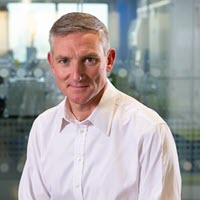
Matthew Durdy
Chief Executive Officer
Cell and Gene Therapy Catapult
Matthew Durdy
Matthew Durdy is Chief Executive of the Cell and Gene Therapy Catapult, having been part of the founding team in 2012. Prior to 2020, he was Chief Business Officer and was responsible for strategy, communications, marketing, and business development. He is credited with leading the design and implementation of the commercial model for the highly successful Cell and Gene Therapy Catapult manufacturing centre and being a global champion for the early integration of healthcare economics and reimbursement expertise into decision-making and clinical product design.
He began his career in international investment banking and venture capital, and has successfully invested in and managed a number of biotechnology SMEs and regional operations of multinational organisations. He has an MA from the University of Oxford in Pure and Applied Biology, an MBA from the University of Chicago, and is a Fellow of the Chartered Institute for Securities and Investment. He is also Vice Chair of the Board of Trustees of the charity Parkinson’s UK.
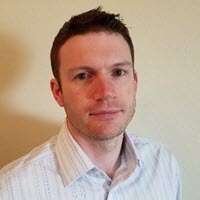
Michael Baker
Senior Director, Viral Gene Therapy
FUJIFILM Diosynth Biotechnologies
Michael Baker
Michael is responsible for overseeing FUJIFILM Diosynth Biotechnologies’ (FDB) Viral Gene Therapy operations in the UK. Prior to this he spent 4 years at FDB’s College Station location in Texas USA where he was Head of Process Development, and was responsible for leading a rapidly expanding process development team. He has previously served in a number of technical roles at FDB’s sites in Texas and the UK and before joining FDB, worked for MSD Biologics and Avecia Biotechnology. Michael gained a BSc in Medical Microbiology and Immunology and an MPhil in Developmental Biology from Newcastle University.
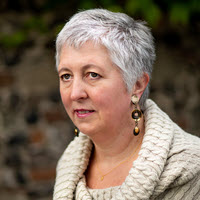
Nicola Redfern
Consultant
NJ Redfern Ltd
Nicola Redfern
Following 5 years’ experience working in the gene therapy arena at bluebird bio, with a focus on reimbursement and commercialisation, Nicola set up NJ Redfern Ltd in 2022 to enable her to consult, coach and collaborate with other organisations.
With a consistent focus over recent decades on rare disease & oncology/ haematology, her primary attention has been on pricing and reimbursement, service delivery and shaping the external environment. She has been in the pharmaceutical industry since 1989, and has been employed by 10 different companies.
Since her company’s inception last year she has contracted with over 12 organisations on a diverse range of projects – including supporting 2 further gene therapy companies in their launch planning in the UK. Nicola was previously an active member of the ABPI – chairing the ATMP working group during 2021, a member of their Value and Access group and supporting various government affairs/communications initiatives. She has worked closely in the last 6 years with the Cell and Gene therapy catapult in the UK. More recently Nicola has been invited to sit on the advisory board for company ATMPS, has given talks at various ATMP congresses in 2022 and 23, been interviewed by Lumanity and Haemnet, and since January 2023 sits on the ethics subgroup of the International Society of Cell and Gene therapy and is a member of ATMP engage.
Nicola is committed to and motivated by patients having a choice and being able to access transformative treatment options quickly once science and innovation reaches a point to positively impact the lives of people living with significant health challenges. Having worked at Martin House hospice in Yorkshire, sat on the board of trustees at Naomi House and Jacks Place – a Hospice for children and young adults near Winchester, UK – and through working alongside multiple patient organisations over her career, she has a strong empathy and understanding of life limiting conditions and their impact on the individual, their families and society as a whole.
She has consistently demonstrated strong leadership capabilities – with a passion for creating and shaping new diverse teams – embedding a positive culture, helping individuals develop, then leading them through defining their strategic focus and driving the initiatives through to completion.
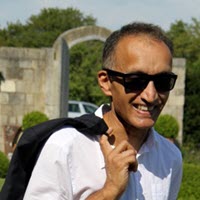
Moin Saleem
Professor of Paediatric Renal Medicine
University of Bristol
Moin Saleem
I trained as an undergraduate at University College, London. I am a Fellow of the Royal College of Physicians. My PhD was in transplantation immunology at Institute of Child Health, London. Paediatric nephrology training at Great Ormond Street Hospital, London. I set up my independent laboratory programme in glomerular cell biology in Bristol, as well as holding a post as a consultant paediatric nephrologist since 1999, with an international reputation in management of nephrotic syndromes, and a pioneer of the field of podocyte biology.
I now head Bristol Renal, a glomerular research group of approximately 45 researchers, covering all areas from cell biology, transgenic models and population cohorts and genetics (H index 82).
I was the originator of the UK Renal Rare Disease Registry (RaDaR), and am currently leading the UK nephrotic syndrome study (NephroS), as well as a major industry-academic collaboration termed NURTuRE (National Unified Renal Translational Research Enterprise). I am PI on several MRC projects, including Precision Medicine, laboratory project grants and a Global Challenges program to establish international NS cohorts.
My gene therapy program commenced in 2014, and is focused on targeting the podocyte in order to radically change the treatment of kidney diseases. I am now co-Founder and Chief Scientific Officer of Purespring Therapeutics
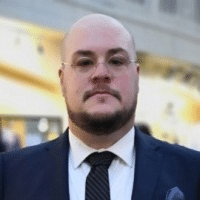
William Scott
Scientific Director, Transplant Regenerative Medicine
Newcastle University Medical School
William Scott
Dr William E “Bill” Scott III PhD, FIBMS, MRSB
Dr. Bill Scott is a Biomedical Engineer who has spent the past 17+ years embedded within healthcare, identifying problems and solutions for the transplant community. He presently works at the Newcastle University Medical school in the Translational and Clinical Research Institute where he helped to establish and serves as Scientific Director for the TRM facility the ‘Transplant Regenerative Medicine’ (TRM) group. Bill is a basic/translational researcher in transplantation and regenerative medicine; particularly focused on understanding changes during the peri-transplant period and developing/assessing novel interventions to overcome these towards increasing utilisation and posttransplant function. To facilitate translation of these findings into clinical practice, Bill has developed a particular focus on improved access to critical research tissues, working with regulatory bodies to adapt to emergent scientific developments, as well as understanding the commercial aspects of clinical translation.
Bill contributes to several national consortia including as a co-Investigator on the NIHR funded ‘Blood and Transplant Research Unit in Organ Donation and Transplantation’ in collaboration with Cambridge University and NHS Blood and Transplant (NHS-BT); Co-Investigator and National Tissue and Cell Processing Coordinator for the Quality in Organ Donation (QUOD) MRC Tissue Bank. Beyond these research activities, Bill also serves as the Module Leader for the Transplantation Master of Research Course at Newcastle University; acts as the Commercialisation Lead for the Regenerative Medicine, Stem Cells, Transplantation Faculty Theme; contributes to a number of national NHS-BT initiatives related to facilitating transplant-related research; and was recently elected to the ESOT Basic Science Committee Board.
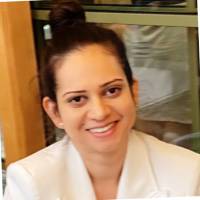
Ketki Vispute
Associate Director, CAR-T manufacturing and Operations
Autolus
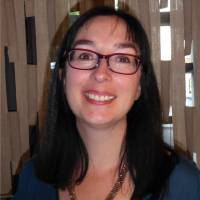
Samantha Barber
Chief Executive
Gene People
Samantha Barber
Samantha is an experienced chief executive and board member in the not-for-profit sector with specialisms in governance, communications and income generation, and has influenced policy through high level engagement with MPs and national bodies such as NICE. She has worked in the rare disease field for the past five years, with senior leadership roles at the Batten Disease Family Association, the Tuberous Sclerosis Association and currently Gene People (formerly Genetic Disorders UK). Samantha is a member of the ABPI Patient Advisory Council. She achieved a Distinction in her MSc in Voluntary Sector Management from Bayes Business School. She holds membership of the Chartered Institute of Fundraising, Chartered Institute of Public Relations and the Chartered Governance Institute as well as being a Fellow of the Royal Society of Arts.
Samantha’s career is based in the not-for-profit sector, and she has worked in a wide range of charities, from the very small to large household names. This is complemented by a number of board roles. She is currently as trustee of Bexhill Heritage Society and, additionally, a Grants and Support Committee Member of the Chartered Secretaries’ Charitable Trust. She is former Chair of Amber Housing and previously a board member of the Royal Air Forces Association and RAFA Housing.
A cool head in a crisis and someone who gets things done, Samantha believes in making every day count. She excels in creating exceptional results from colleagues and enjoys achieving more than is thought possible.
Currently Gene People is seeking to expand their Patient Organisation Partnership Network and their corporate partnerships and Samantha is happy to receive connections.
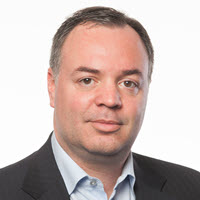
Stefanos Theoharis
Chief Business Officer
Kiji Therapeutics
Stefanos Theoharis
Stefanos, PhD, with more than 20 years of broad experience in the cell and gene therapy space, business development, program management, manufacturing and basic research brings a deep knowledge C> sector. Former CBO of Bone Therapeutics, Belgium-based company, developing specialized cell therapies for orthopaedic disorders. Pior to that he was Senior Vice-President at Cell Medica, and CBO at apceth GmbH. He also held positions as Head of Business Development at the antisense RNA drug specialist Antisense Pharma (now Isarna), and Director Business Development at Roche, focused on partnering activities in emerging science and technologies. Stefanos also worked at Lazard, the global investment bank, advising to a variety of life sciences firms on M&As and financing transactions.
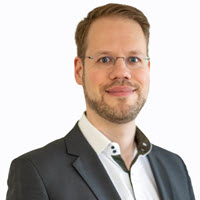
Dominic Schmidt
General Partner
Advent Life Sciences
Dominic Schmidt
Dominic joined Advent Life Sciences in April 2022 with a background in biochemistry, genomics, molecular oncology, strategy consulting and life science venture capital.
Prior to joining Advent, he spent eight years as a Partner in the investment team of Syncona, a publicly listed healthcare investment company. During his time there he was involved in the founding, funding and building of several life science businesses and served on the Boards of Anaveon, Orbit Biomedical (merged with Gyroscope), Gyroscope Therapeutics (acquired by Novartis for up to $1.5 billion), Purespring Therapeutics and Forcefield Therapeutics.
After gaining a German Diplom Degree in Biochemistry from the Free University of Berlin and the Max Planck Institute for Molecular Genetics he received a PhD from the Department of Oncology at the University of Cambridge. Dominic was a Cancer Research UK scholar and his research has been published in Cell, Nature and Science. His PhD thesis was recognized with the Pontecorvo and Science & SciLife Lab Prizes.
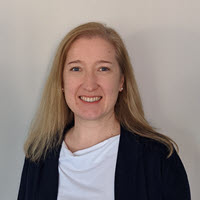
Terri Gaskell
Chief Technical Officer
Rinri Therapeutics Ltd
Terri Gaskell
Terri has over 20 years of life sciences R&D experience in both academic and industry roles with a focus on the development and translation of cell- and gene-based therapies. Before joining Rinri, Terri worked at the Cell and Gene Therapy Catapult for over seven years on the translation of a broad range of candidate therapies, including stem cell derived, alongside underpinning technologies and infrastructure. Her role at CGT Catapult also included advising academics and small companies on the development of advanced therapies.
Prior to this, Terri held senior roles in industry focussed on the development of processes for the expansion and differentiation of pluripotent stem cells for therapeutic use and drug discovery. Terri received her BSc. (Hons) in Biochemistry from the University of Dundee and holds a PhD in Cell and Molecular Biology from the University of Edinburgh.
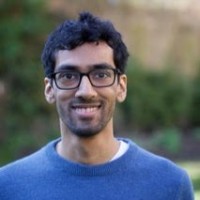
Gaurav Venkataraman
Cofounder and Chief Executive Officer
Trisk Bio
Gaurav Venkataraman
Gaurav is a cofounder and the CEO of Trisk Bio, based in Stevenage. Trisk is building a new kind of fully-automated scale-out manufacturing facility for biologics. Before Trisk, Gaurav did a postdoc in RNA biology at Cambridge. Before his postdoc, Gaurav did a PhD in neuroscience at University College London and a BA in mathematics from Reed College.
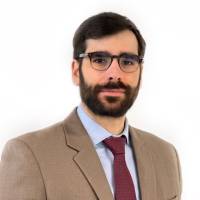
Antoine Espinet
Co Founder & Chief Executive Officer
MicrofluidX
Antoine Espinet
Antoine is the CEO and co-founder at MicrofluidX. He has 5 years of experience in cell therapy tools. Prior to MicrofluidX, Antoine was a management consultant at McKinsey for 5 years. He holds a PhD in Engineering from Cornell University.
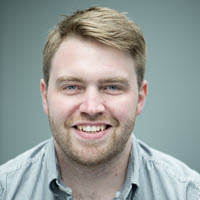
Joe Healey
Chief Executive Officer and Co-Founder
NanoSyrinx
Joe Healey
Joe Healey is the CEO and Co-Founder of NanoSyrinx, a discovery-stage synthetic biology biotech which is developing a novel delivery modality for complex biologics.
Joe founded the company, along with his PhD supervisor Dr Nick Waterfield and a fellow post-doc, Dr Alexia Hapeshi, during his PhD at the University of Warwick’s Medical School, and has been the entrepreneurial lead driving the development of the company from its inception. Joe’s passion has always been synthetic biology, and being able to translate NanoSyrinx’s unusual IP is something of a dream come true. The company is leveraging naturally occurring, genetically encoded ‘nanosyringes’ which are capable of delivering proteins and peptides directly to the cytosol of targeted cells, and the company is looking at applications across therapeutics and cell and gene engineering.
He holds a PhD and MSc in Mathematical Biology and Biophysical Chemistry from the University of Warwick, and graduated top of his class from his BSc (Hons) Biology degree.
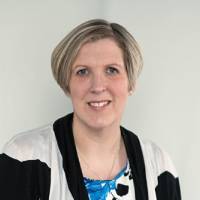
Katy Newton
Senior Vice President immunology and Process Development
Achilles Therapeutics

James Fry
Partner and Head of Life Sciences
Mills & Reeve
James Fry
James heads Mills & Reeve’s multi-disciplinary life sciences practice. He supports businesses across the full product lifecycle, from start-up to commercialisation.
A key focus of his work is supporting clients on strategic contracting covering technology / IP in and out- licensing transactions, research collaborations, clinical trial agreements and long term partnering agreements. James also advises on sector regulation including pharma and medical device regulation, market access, borderline products, advertising and clinical trials.
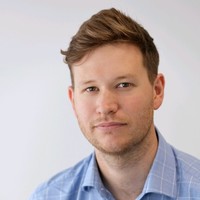
Sam Goldsmith
Head of Commercialisation of Research and Investments
Cell and Gene Therapy Catapult
Sam Goldsmith
Advanced Therapy commercialisation professional and published scientist with wide-ranging interests including research commercialisation, venture capital, intellectual property, life sciences and novel medical technologies. Passionate about gene and cell therapies, spin-out creation and technology investment.
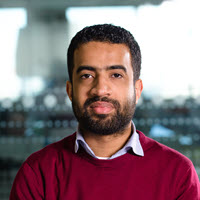
Mustafa Munye
Vice President Operations
Complement Therapeutics
Mustafa Munye
Mustafa is currently Director of R&D Operations at Complement Therapeutics where he is responsible for driving discovery and development efforts. He has significant industry experience in the translation of cell and gene therapies gained at GSK and CGTC. Mustafa has led process and analytical development for AAV, CAR-T and PSC derived products to support FIH and late-stage clinical studies. He also serves as a board member of the British Society for Gene and Cell Therapy working to overcome common barriers to translation and commercialisation of Advanced Therapies.
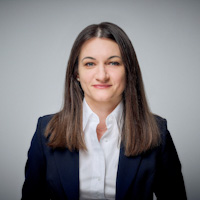
Karolina Zapadka
Investor
Parkwalk Advisors
Karolina Zapadka
Karolina has nearly a decade of experience in building life sciences and healthcare companies within the Cambridge Cluster. She played a pivotal role in securing pre-seed and seed investment from a stellar syndicate of investors. In 2018 she co-founded and successfully delivered the first life sciences startup accelerator with a portfolio of 20 early-stage ventures in Cambridge. She started her career as a scientist at a leading biopharmaceutical company delivering a portfolio of products to clinics. Karolina completed a PhD in biophysics (diabetes & neurosciences) from the University of Cambridge and carried out a drug development postdoc work at AstraZeneca.
Karolina joined Parkwalk Advisors’ investment team in 2021. She has over a decade of experience building life sciences and healthcare companies within the Cambridge Cluster. Karolina played a pivotal role in securing pre-seed, seed, and Series A investments from a stellar syndicate of investors. In 2018 she co-founded and successfully delivered the first life sciences startup accelerator in Cambridge with a portfolio of 20 companies that have raised over £68m. She started her career as a scientist at a leading biopharmaceutical company delivering a portfolio of products to clinics. Karolina completed a PhD in biophysics (diabetes & neurosciences) from the University of Cambridge and carried out a drug development postdoc work at MedImmune/AstraZeneca.
Parkwalk Advisors is one of the UK’s leading growth fund managers, backing world-changing technologies emerging from UK universities and research institutions. Our unique asset class backs high-potential, hard science technology companies from a range of sectors, including life sciences, AI, big data, materials, medtech and much more.
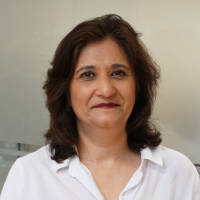
Sheela Upadhyaya
Life Sciences Consultant
Sheela Upadhyaya
Sheela Upadhyaya is an independent consultant to the life sciences industry having been in healthcare for over 25 years with the last 15 years in rare diseases.
She commissioned rare disease services for NHS England and led the NICE Highly Specialised Technology program, evaluating medicines and technologies for ultra-rare conditions. Her most recent role at NICE involved her coordinating the response to the COVID pandemic and delivering a strategic response for NICE against the Rare Disease Framework.
She now consults in rare diseases with the life sciences industry and is currently chair for Together for Rare Diseases, supporting collaboration with European Reference Networks and Industry to improve the research in rare diseases.
Sheela has extensive experience in understanding the issues in rare diseases facing the healthcare ecosystem in terms from diagnosis, service provision and access to therapeutics. These include modelling challenges, developing innovative access arrangements in liaison with industry, clinicians, patients and the healthcare policy makers.
Sheela has co-authored several papers that discuss challenges in rare diseases and HTA methods for assessing the value of orphan medicines and presented at many conference issue panels on the subject.
Sheela is an adviser to the European Haemophilia Consortium Think Tank, Chair for the ALS Coalition in Europe and Past Chair for the ISPOR Rare Disease special interest group.
Sheela has a passion for partnership working and believes that collaboration across the sector is the key to delivering high quality outcomes for all.
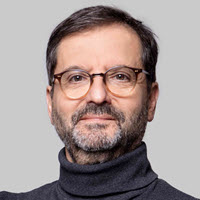
Miguel Forte
Chief Executive Officer
Kiji Therapeutics
Miguel Forte
President-Elect and Board of Directors member of the International Society of Cell and Gene Therapy (ISCT) from May 2022. Previously Chief Commercialization Officer and Chair of the ISCT Commercialization Committee (2014-2020) leading the expansion of the industrial community, strengthening the Committee to better represent the industrial translational objectives and needs of society membership.
CEO and Co-Founder of Kiji Therapeutics and Entrepreneur in Residence (EiR) with AdBio Partners, Executive Chairman of the Board of StemBond and consulting through mC4Tx to several organizations, Professor at the Lisbon University and Board of Directors and Executive Committee member for Alliance for Regenerative Medicine (ARM).
Previously CEO of Bone Therapeutics (2019-2022) leading the listed company through strategic refocus, several raises and a successful M&A transaction. Before that, CEO of Zelluna Immunotherapy (2017-2019), where he established the corporate structure, raised successfully, built the team and launched the strategy for solid tumors allogeneic C>. From 2010-2017 was CMO/COO of TxCell, establishing and leading the professional C> product translation development for autoimmune diseases. Participated on the company IPO and several successful raises. From 2006-2010 was VP of Global Medical Affairs at UCB contributing to the development of the biologics portfolio, product approval and launch. In 2004, joined Nabi Pharmaceuticals as the VP of Medical/Regulatory Affairs for Europe, leading from inception the creation of the vaccine company in Europe.
After several public sector clinical, academic, and regulatory positions in Portugal and at the European Medicines Agency (EMA), namely as CHMP member, spent six years with BMS (1998-2003) as Country Medical Director, Executive Director, and VP of International Medical in Portugal and Belgium.
Holds an M.D. and Specialist in Infectious Diseases from the Faculty of Medicine, University of Lisbon, a Ph.D. in Immunology, University of Birmingham, and a certificate on Health Technologies Economics, Stockholm School of Economics. He is Fellow of the Faculty of Pharmaceutical Medicine of the RCP in the UK.
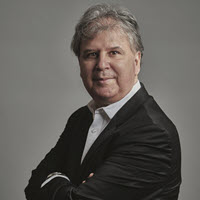
Eric Halioua
President & Chief Executive Officer
PDC*line Pharma
Eric Halioua
Serial entrepreneur that combines strong strategic, technological and managerial experience with proven track record of deal-making and fund-raising. During his career he achieved together with his different teams to bring four drug candidates from research to the clinics (up to phase IIb). Overall, Eric has raised as of now a total of more than €160 million from VCs and strategic partners in Europe, USA, Japan and Korea and have had numerous successes in the sale and initial public offering of biotechnology companies. He is CEO of the biotechnology company PDC*line Pharma and board member of Essenscia (Bio.be). Eric is co-founder of four biotechnology companies called Myosix (bought by Genzyme mid-2002), Murigenetics, HairClone and Digital Orthopaedics. He is co-Inventor of the first GMP approved mobile manufacturing unit for cell therapy. Eric worked for 12 years in the Healthcare and Life Sciences Practice of Arthur D. Little. Eric holds two master’s degrees in pharmacology and Molecular Biology and a MBA from ESSEC business school (Paris, France), with an advanced degree from the Health Care ESSEC chair.
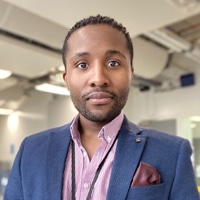
James Kusena
Vice President of Operations
MicrofluidX
James Kusena
James is the Vice President of Operations at MicrofluidX, where they are developing a cell therapy bioprocessing and manufacturing platform to help industrialise cell therapies.
James has experience in cell therapy process development and manufacturing optimisation. His work has focused on understanding the translational requirements for robust product realisation, considering aspects such as process development, manufacturability and ultimately the clinical adoption and health economic implications.
His technical experience has been focused on GMP protocol adaptation and the translational work required for GMP manufacturing of cell therapies. Additionally, James has a background in Medicinal Chemistry, International Business and Health economics. James is a mentor and coach focusing on personal and professional skills development within a range of areas including the cell therapy and bio-engineering fields.
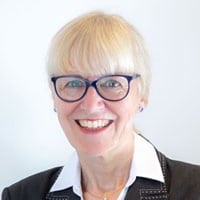
Kathryn Simpson
Business Consultant
Kathryn Simpson Consulting Limited
Kathryn Simpson
Kathryn is a respected and successful change leadership expert, with diverse career experience in Europe and North America. She has over 25 years of consulting and line experience with leading organisations (Unilever, Mars, KPMG and GSK). Since 2007 she has been leading her own independent consulting business, primarily working within the Life Sciences sector. By partnering with leaders at all levels within the sector, growth and sustainable success has resulted for the organisations she has worked with. She has recently published a book – “Leading for Change: How to thrive during uncertain times”.
She provides each organisation the approaches they need to meet their unique situation. Tailored approaches are used to develop a consolidated understanding of their environment and the priority challenges they face. This provides the basis for facilitating customised workshops where leaders not only create a desired future, but are ready to move forward and implement their ideas. Working with individual leaders or teams she advises how to bring other stakeholders with them so they achieve success together. These practical and supportive approaches create focus, accountability and collaboration across organisations and their partners. Organisations are left with an increased leadership capability and tangible business results.
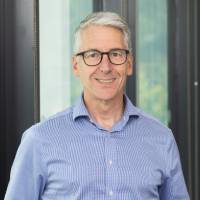
David Venables
Chief Executive Officer
Laverock Therapeutics
David Venables
Prof David Venables has three decades of experience as a serial biotech entrepreneur having taken companies from creation through to acquisition or IPO, and taken products from development through to commercial launch. Currently Founding CEO of Laverock Therapeutics, Board member of Axol Bioscience and NovelGen, and mentor to a number of start-ups.
David has held CEO or Senior Executive roles in AskBio, Synpromics, Nightstar, Anatara Lifesciences, Ark Therapeutics, Valneva; is Honorary Professor at Edinburgh University, and holds a PhD in Bioprocess Engineering from University of Surrey.

Bakul Gupta
Co-Founder
Deliver Biosciences
Bakul Gupta
Dr Bakul Gupta is the CEO and Co-founder of Deliver Biosciences, a preclinical stage cell therapy biotech which is developing safe, scalable and affordable in vivo cell therapies. The company is leveraging its unique platform to effectively deliver genetic cargoes directly to targeted cells, and applying it across different indications in cell and gene therapies.
Bakul founded the company in 2019, along with her business partner, Dr George Tetley after a 6-month long research into the challenges faced by current cell and gene therapy companies. She holds a PhD and BSc in Nanotechnology and Chemistry from the UNSW Australia, and finished her postdoctoral training with Prof. Molly Stevens at Imperial College London before starting ImmTune Therapies.
She has over 10 years of experience in designing nano- and bio-materials for a diverse set of biomedical applications and has previous experience in commercialisation of medical devices. She was recently listed as the Top 30 biotech entrepreneurs to watch as part of a report produced by BioBeat.
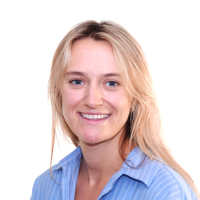
Ellie Junod
Investment Manager, Life Sciences
UBS
Ellie Junod
Ellie is an Investment Manager for the UBS Life Sciences fund. The fund focuses on the development of fit-for-purpose Life Sciences facilities across the UK. Prior to UBS Ellie worked at Jones Lang La Salle (JLL) in the UK Life Sciences team advising clients on strategic Life Sciences development and investment opportunities.
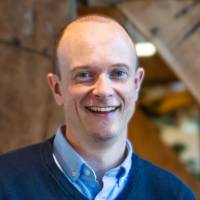
Stephen Blatcher
Head of MedTech
Team Consulting
Stephen Blatcher
Stephen is an experienced innovator, programme manager and business leader with proven ability to take unique medical technologies from concept through to regulatory approval. Prior to joining Team Consulting Stephen was co-founder, Chief Technology Officer and Chief Operating Officer at PlaqueTec Limited where Stephen managed the evolution of its novel Liquid Biopsy Catheter from its initial IP filings through to CE-certification in Europe.
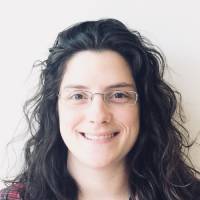
Kella Kapnisi
Project Manager, Senior Consultant
Team Consulting
Kella Kapnisi
Senior consultant and project manager, delivering projects from concept through to production, for medical devices & in vitro diagnostics. As well as being involved in usability engineering, business development, strategic reviews of project operations, ensuring efficient engineering design processes.
Background in polymer chemistry and a PhD in biomaterial engineering, under Prof Molly Stevens at Imperial College London, developing tissue engineered cardiac patches for treating heart attacks.

Rebecca Street
Head of Digital Operations
RoslinCT
Rebecca Street
After 20 years at GSK in a mix of roles across R&D and supply chain, I am still motivated by Pharma’s combination of science, technology and engineering to save lives. I have the experience and enthusiasm to lead teams and manage significant budgets. My experience is in biopharmaceutical scale up and launch, sterile manufacturing and digitization: Designing and delivering one of GSK’s first digital factories. I am gaining experience in cell and gene therapy, returning to my degree specialisation in Genetics.
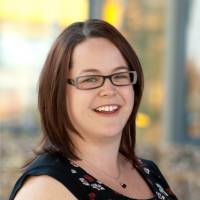
Aimee Tyler
Clinical Account Manager
Miltenyi Biotec
Aimee Tyler
Aimee joined Miltenyi Biotec as a Technical Sales Consultant in 2016. Her knowledge in sample preparation, cell sorting and flow cytometry was invaluable in supporting customers predominately in a laboratory setting. Having gained excellent understanding of the importance of clinical collaboration to translate research into the clinic, Aimee transitioned into the UK Clinical team in January 2020. As a Clinical Account Manager with a strong entrepreneurial mindset, she identifies and pursues progressive opportunities within the Cell & Gene Therapy sector. Working closely within Biotech, the NHS and academia, Aimee supports translation of research through to GMP manufacturing and patient treatment.
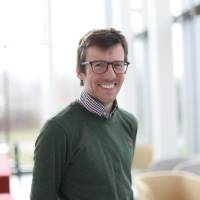
Philip Probert
Biologics Technology Lead
CPI
Philip Probert
Philip is Technology Lead at CPI Biologics, managing a team encompassing the upstream, downstream, analytical and MSAT groups. In his role he oversees and supports resourcing and delivery of a challenging commercial and collaborative project portfolio. He has experience of technical leadership of projects encompassing a diverse range of product types including recombinant proteins, monoclonal antibodies, viral vectors and nucleic acids, working from bench to pilot scale expressed in mammalian, microbial and/or cell-free systems. This includes high throughput process development, design of experiment approaches to process optimisation and development and exploitation of molecular methods including the use of next-generation sequencing and bioinformatics to inform production clone selection.
Prior to joining CPI, he was a research associate at Newcastle University where he developed and used a range of methodologies including sequencing, bioanalytical and chemical assays to identify novel environmental contaminants. Prior to this he achieved his doctorate for his thesis which developed, validated and published novel in-vitro and in-vivo toxicology models at Newcastle University.
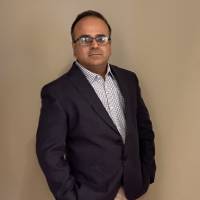
Dharmesh Vara
EMEA Field Application Specialist Leader
Cytiva
Dharmesh Vara
Dr Vara is the EMEA Field Application Specialist Leader at Cytiva. Dharmesh leads a team that supports the industry to utilise Cytiva’s cell therapy portfolio to progress their therapies towards patient benefit.
Dharmesh has spent the last two decades working in manufacturing, QA/RA and most recently Commercial Field Applications at Cytiva. He is passionate about upskilling the cell therapy workforce by hosting numerous practical workshops for scientists and helping them create safer therapies with automation and process standardisation.
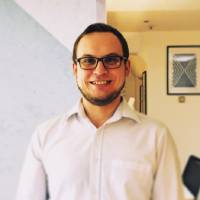
Ian Parnham
Skills Programme Lead
Cell and Gene Therapy Catapult
Ian Parnham
✔ Looking to bridge the gap in Education & Skills between industry, academia, government & industrial organisations
✔ Delivery of projects to budget and timelines
✔ Enthusiastic communicator: public engagement, #scicomm, #EarlyCareers, science entrepreneur club, developing the next generation of talent in STEM careers, capable and passionate networker
✔ Multilingual: fluent in English, German, Croatian, and Dutch
✔ Inter-disciplinary: Industry experience, academic qualifications, strong network
✔ Science expertise: PhD Viral Cell Biology, 9 years of Molecular Biology, Biochemistry, Cell Biology and Virology experience
✔ Driven by a desire to help people reach their potential and change lives with the work I do. Career to date has therefore led me to Skills within the Cell and Gene Therapy sector
🔊 All views my own and do not represent my employer
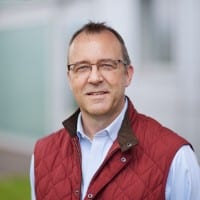
Mark Cunningham
Head of Operations
NATA - Nucleic Acid Therapy Accelerator
Mark Cunningham
Just started a new chapter in my career as Head of Operations at the Nucleic Acid Therapy Accelerator (NATA), part of the UK MRC and UKRI. At NATA we are looking to develop internal capabilities and partner with external scientists in the fields of oligonucleotide chemistry and biology. Previously, at Janssen R&D, I played a variety of roles including ‘Chief of Staff’ for the Immunology Therapeutic Area, ‘Scientific Strategist’ evolving R&D facilities in Philadelphia, PA and San Francisco, CA and ‘Governance Facilitator’ for projects in Early and Late Development phases focused on autoimmune diseases. I want to do a job that I love by taking advantage of my scientific education, R&D experience (in both small and large molecule programs) and by joining a team that enables the development of new healthcare solutions for patients with unmet medical need. The picture is my son sculling on the Schuylkill river, returning to Boathouse Row on a warm summer’s evening in 2018.
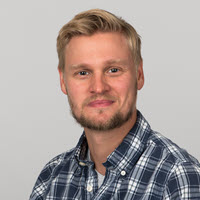
Steve Kappenthuler
Chief Business Officer and Co-founder
Muvon Therapeutics
Steve Kappenthuler
Steve is one of the co-founders of MUVON Therapeutics, a clinical stage Life Science spin-off from the University of Zurich developing a cell therapy platform for the regeneration of skeletal muscle tissue, and has been working with the team since 2019. With his interdisciplinary background in science and economics, Steve is responsible for the overall business and strategy development of MUVON and further supports in fundraising and organizational planning. Steve received his PhD in Chemistry and Business Studies from the University of Zurich in 2020. Between the completion of his Master’s degree (Chemistry and Business Studies UZH) and his PhD he worked for 2 Years at the Department of Management and Technology of the ETH Zurich conducting research on VC decision making and corporate venture capital.
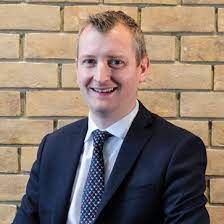
Tom Pike
Deputy Chief Executive Officer & Strategic Director
Stevenage Borough Council
Tom Pike
Tom is Stevenage Borough Council’s Strategic Director and Deputy CEO. He joined Stevenage in 2016, having worked for the London Borough of Barnet. Tom’s role includes working on town centre regeneration, affordable and mixed housing development projects, planning, ICT and digital transformation and working on growth projects across Hertfordshire. In his previous roles, Tom has led the delivery of major capital projects, Council wide transformation, service performance and management of operations including environment services, libraries and museums. Tom has a PhD in Business Studies.
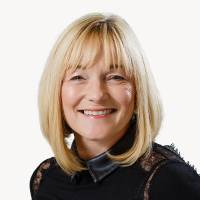
Debbie Flanagan
Director of Market Access
Gilead Sciences
Debbie Flanagan
Debbie Flanagan (BSC MSc PhD) is a Director of Market Access at Gilead Sciences Ltd. With >27 years’ experience across the pharmaceutical and diagnostic industry, she is passionate about shaping the policy and reimbursement landscape to ensure patients can access new and innovative therapies, spanning therapeutic areas such as HIV, Hepatitis C and Cell & Gene therapies. She is proud to have been involved in the collaborative approach taken by industry, NHSE and NHS Providers in enabling the initial establishment of CAR-T therapies in the UK. This has had a significant impact on patients living with diffuse large cell B Lymphoma and won an HSJ Partnership Award in 2020. Another significant achievement for Debbie was when Gilead won gold in the England Hepatitis C elimination tender – this ground-breaking partnership between NHSE & industry has made the elimination of an infectious blood borne virus a reality for many underserved and marginalised sectors of society. She is determined to continue to build on these successes and champion collaborative working with the system to ensure that optimal pathways are in place and all patients can benefit from innovative treatments.
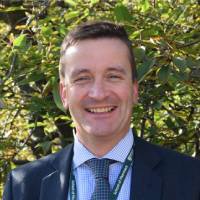
Neil Watson
Co-Director
Northern Alliance Advanced Therapies Treatment Centre
Neil Watson
Professor Watson is the Clinical Director of Pharmacy and Medicines Optimisation at The Newcastle upon Tyne Hospitals NHS Foundation Trust, leading a team of 400 staff working across two hospital sites (The Royal Victoria Infirmary and The Freeman Hospital) and in integrated teams supporting primary care, a post which he has held since April 2007. Professor Watson’s primary areas of interest are Advanced Therapies, Integrated Care, Population Health, and Clinical Informatics, supporting data driven care.
As Co-Director of one of three ATTCs, Professor Watson is supporting the creation of optimal adoption pathways for ATMPs into the NHS.
More recently, Professor Watson led the Covid Vaccination Programme for the North east and North Cumbria, and faced the challenges of Health and Healthcare inequality on a daily basis.
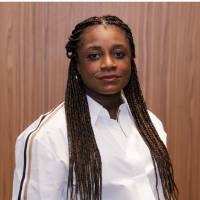
Anji Miller
Programme Director Translational Fellowships Skills Lead, Innovation hubs for Gene Therapies Senior Business Manager, LifeArc
LifeArc
Anji Miller
Anji is a TT professional with more than 19 years’ experience of working with early-stage translational research. Anji has extensive experience of IP and contract management, licensing, business development of healthcare technologies, and development of knowledge transfer policies. Her current role at LifeArc involves working with academic and charitable establishments to identify, cultivate, fund, and commercialise early-stage healthcare technologies, focusing on rare diseases and the advanced therapies.
A proponent for professional advancement in STEM careers, Anji is active in many initiatives missioned to address the current UK skills gap and training shortage. These include leadership of the LifeArc-AUTM TT Training Fellowship and LifeArc TTO Fellowship programmes, designed to train, and assist scientists to become TT professionals; directing LifeArc’s translational placement and training programmes, and working with external partners to improve STEM learning and development in education. As the Skills Lead for recently launched Innovation Hubs for Gene Therapy, Anji works with the Innovation Hubs to address the identified skills needs in the advanced therapy sector.
An advocate of equality diversity and Inclusion, Anji cofounded Global Equality, Diversity and Equality in Technology Transfer (GEDITT), an initiative missioned to raise awareness and promote EDI in the TT sector.
Anji holds an M.Sc. in Human Molecular Genetics and Ph.D in Cancer Genetics from Imperial College, and M.Sc. and Certificate in IP Law from QMUL. She is a certified project manager, Registered Technology Transfer Professional and Certified Licensing Professional.
Anji is a board member of AUTM, The Alliance of Technology Transfer Practitioners (ATTP), ASTP, Certified Licensing Professional (CLP) and, a member of the BioIndustry Association (BIA) Cell & Gene Therapy Advisory Committee, and the AUTM Equity, Diversity & Inclusivity Committee.
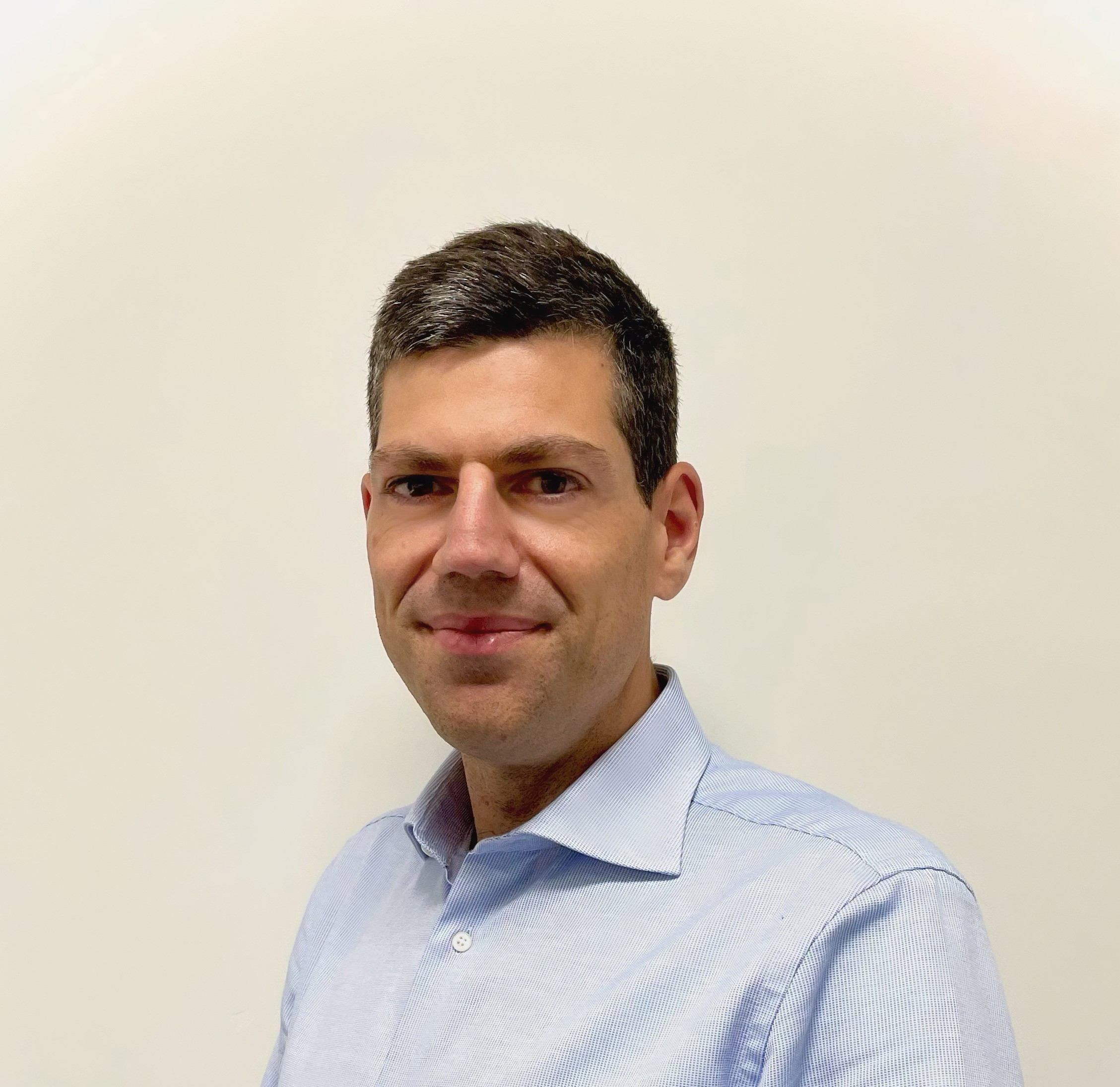
Fotios Sampaziotis
Group Leader
University of Cambridge
Fotios Sampaziotis
Fotios Sampaziotis is a UK Research and Innovation (UKRI) Future Leaders Fellow and a group leader at the University of Cambridge and an honorary consultant hepatologist in Addenbrooke’s hospital. He obtained his medical degree from the University of Athens and completed his hepatology clinical training in Cambridge. In parallel, he secured an MRC Clinical Research Training Fellowship towards a PhD degree in the Cambridge Stem Cell Institute and continued his post-doctoral research as an NIHR Clinical Lectureship in Hepatology with Prof Ludovic Vallier in Cambridge.
Fotios’ research combines bioengineering, cell therapies and human organs perfused ex-vivo to develop new disruptive regenerative medicine therapies. His work in regenerative medicine has received international recognition with multiple awards including the Science and Sartorius Award for Regenerative Medicine, the British Transplantation Society Medawar Medal and the UEG Rising Star award (2022). He serves as an active member of multiple international consortia and governing boards, including the EASL Regenerative Hepatology consortium. He is the vice-chair of the European Cell Therapy and Organ Regeneration Section (ECTORS) governing board, a visiting Professor in the university of Oslo and theme lead for liver research in the NHS Blood and Transplant Research Unit on Organ Donation. To translate his research into clinical products, Fotis co-founded Bilitech ltd, a startup biotechnology company listed as finalist in the Nature and Merck spinoff prize and is currently acting as CEO of the company.
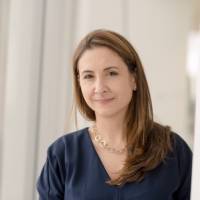
Alessia Errico
Associate Director Search & Evaluation and Entrepreneurial Programmes Lead
Cancer Research Horizons
Alessia Errico
Alessia Errico, PhD MBA is a technology transfer professional, specialised in the field of oncology. She is the Associate Director for Search & Evaluation at Cancer Research Horizons, the innovation engine of Cancer Research UK (CRUK), the world larger charitable funder of cancer research, with an annual research expenditure of in excess of 300m and a successful track record of translating basic research into patient benefit having contributed to 11 marketed drugs. Within her role, she leads a team responsible for sourcing of new opportunities arising from CRUK funded science, in the UK and internationally, that have the potential of translating to the clinic. Specifically, the Search & Evaluation team is responsible for IP protection, industry collaboration and propositions for spin-out formation. At Cancer Research Horizons, she has also defined the strategy and co-lead the foundation of its Entrepreneurship Programme, aimed at promoting an entrepreneurial culture within the academic sector. This programme consists of educational innovation summits and workshops, mentorship programme dedicated to support researchers with an interest in innovation and entrepreneurship, partnership with business accelerators and opportunity to take part in customer discovery programme to support early stage ideas.
Alessia has trained as a scientist. She has Master degree in Biochemistry, a PhD in human genetics and has 14 years of research experience across different fields, from genetic disease to cancer biology. She has been an editor for Nature Review Clinical Oncology and has been responsible for research funding at CRUK, looking after CRUK Institute portfolio and the charity accelerator award scheme. A keen interest in business management and entrepreneurialism and innovation applied to healthcare led her to obtain an MBA with a healthcare specialism at Warwick Business School.
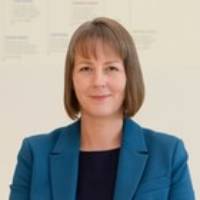
Jo Brewer
Chief Scientific Officer
Adaptimmune
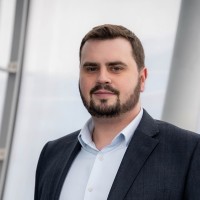
Robert Panting
General Manager, ATMP
Rentschler Biopharma
Robert Panting
Robert Panting is General Manager of Rentschler Biopharma’s ATMP business, leading a client-centric approach to bringing advanced therapies to patients. He joined Rentschler Biopharma as a pivotal member of the ATMP team, leveraging over a decade of experience in the biopharmaceutical industry, as well as strategic leadership and executive management experience.
Previously, Rob was an integral force in shaping FUJIFILM Diosynth Biotechnologies’ landscape, where he spent an impactful decade starting as a Principal Scientist and advancing to VP of Program Management and S&OP in the UK. During this time, he directed strategic planning, led program delivery and provided cross-functional team leadership, significantly contributing to the company’s growth.
He holds a Ph.D. in Biochemistry and Molecular Biology, along with a BSc in Biochemistry from Newcastle University.
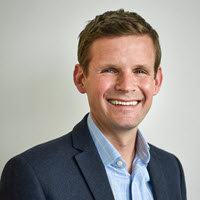
Simon Chandler
Chief Executive Officer
Rinri Therapeutics
Simon Chandler
Simon has been Rinri’s CEO from its inception, working closely with Rinri’s founder and responsible for the strategic direction and operation of the company.
Having spent most of his career within blue-chip biotechnology and pharmaceutic companies, Simon has developed deep sector knowledge and experience in the biotech sector. He joined Rinri from IP Group, a specialist deep-tech venture capital fund, where he worked in early-stage investment and venture building, creating companies from world-class science. This exposed him to the innovative life science market across medical diagnostics, devices, synthetic biology, artificial intelligence, novel antimicrobials, and the advanced therapeutics landscape.
Simon believes that Rinri’s strong preclinical data and clinical development progress puts it at the forefront of hearing loss therapeutic development with enormous potential to make a real-world impact on patients and healthcare systems to realise a world where hearing loss can be restored, reconnecting people with the world around them.
He holds a 1st class BSc (Hons.) in Biology from the University of Leeds and a PhD. in Molecular Biology and Biochemistry from the University of York.
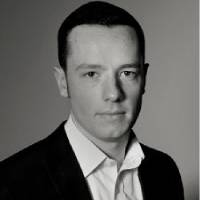
James Rutley
Head of our Business Development
Autolomous
James Rutley
A Biochemical Engineer by training, I have a passion for translating small scale discoveries into industrially relevant biological processes to make it possible for them to reach the people who need them. This has been the focus of my further doctoral training and early employment work.
Although I have experience operating downstream processes, my work to date has focussed on upstream processing, its optimisation and characterisation for the improvement of bioprocesses.
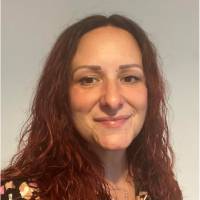
Lucy Ellerker-Jones
Founder
Opie Jones Foundation
Lucy Ellerker-Jones
Lucy Ellerker-Jones is the Founder of the Opie Jones Foundation, a UK-based charity focused on creating hope for families whose are devastated by childhood cancer, by funding emotional and mental health support to family members of children diagnosed with cancer, creating access to CAR-T resources to patients and their families, and advocating for kinder, innovative treatments, such as CAR-T therapies to be more accessible to those who need them. Lucy is mum to her son, Opie who inspired the foundation, after being diagnosed with infant leukemia at the age of 5 months and receiving a lifesaving CAR-T therapy at 14 months old. Lucy is a qualified Social worker, working in both Adult services and Childrens’ services.
